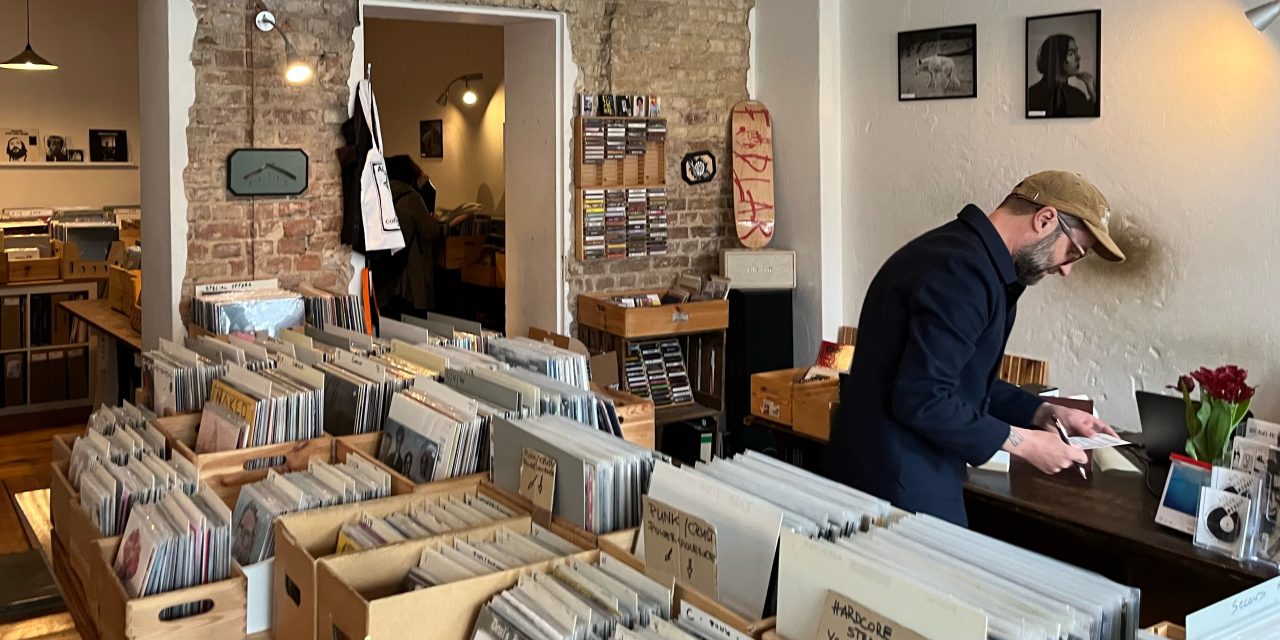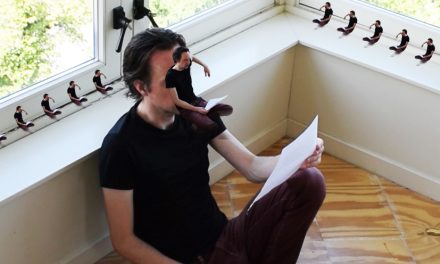Few cities have a reputation quite like Berlin. It attracts thousands of tourists and expats with its mysterious energy. Seemingly oblivious to the people coming in from abroad, throughout the years the locals have started to notice a change. Not only in the cost of living in the city, but also in its cultural and musical scene.
Light raindrops fall on the moss-covered cobblestone pavement. The area of Freidrichshain is slowly waking up, or possibly going to sleep, depending on if you are on one of the people going to explore the eastern gallery or heading home after a night out at the mythical techno club Berghain. In a quiet corner, a graffiti covered white building is hid away from the morning traffic. Outside one of the buildings’ wooden doors you find a bench with one green and one red plastic box filled with various vinyl records.
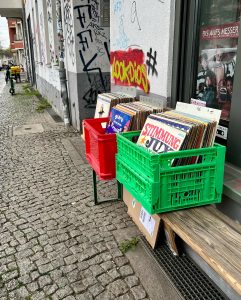
The record store promotes more avant-garde music rather than the typical Berlin techno. Photo: Hugo Göthberg
“We started out as a punkrock record store but quickly expanded to electronica, jazz and more obscure stuff”, Robert Schulze, the owner of Bis Aufs Messer Records, says.
Born in eastern Germany about an hour south of Berlin, Robert Schulze now resides in the metropolitan where he runs his record store since 2006. Compared to now, the neighborhood used to be quite unpopular. He took over the place after his dad, that used it as his art space in the 70’s, retired.
“Back then Berlin was a different place. It was more raw, some would say dirty, but there was a certain energy” he explains.
Blending the east and west
This raw energy can be traced back through the musical history of the city. Before the wall fell the East Berlin music scene was heavily censured and controlled by the government. Western genres such as jazz and rock were discouraged or banned. Instead, classical music was the genre of preference. This oppression however led to underground music scenes emerging such as punk and new wave. Meanwhile, in West Berlin a stark contrast can be seen with its vibrant music scene that flourished. With no need to be underground, it became a hub for punk and rock musicians and even attracting major international artists. Once the wall fell the merging of the scenes began and artists started to influence each other. Genres such as house and techno, which are often considered synonymous with Berlin, exploded much thanks to the blending of artists from the two sides of the broken city.
“I think a lot of people from the west came here in the 90’s because it was an unexplored landscape and people were hungry for something new”, Robert Schulze says and continues:
“I am from the east, so I don’t know what their perspective was. I was used to gray Prenzlauer Berg and stuff like having a toilet outside on the street in front of your house. Now I think Berlin is the same on both sides of the river.”
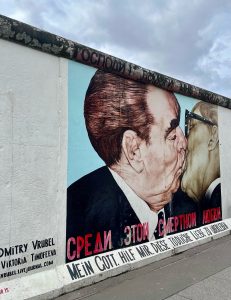
The east side gallery is also located in the neighborhood of Freidrichshain. Photo: Hugo Göthberg
Complications of a cultural melting pot
People breaking new grounds and exploring Berlin has since become a staple and a driving force of the city’s evolution. Often seen as a hub for freedom and as a place with little to no boundaries, Berlin has since the fall of the wall become a metropolis that expats from all over the world flock to. Stats presented by the city of Berlin shows that every year almost 100,000 people move into the city from abroad, and a large majority of them being young people, and it doesn’t seem to slow down any time soon. Seemingly good since different cultures mixing adds to the already cultural melting pot that is the city, some would say it also has a negative effect on the city. Costs of living are skyrocketing, and gentrification of the cultural and musical scene has been starting to make its way throughout the graffiti clad city.
“It’s harder for people to focus on their dreams when they have to think about costs. When you have to make a living so hard, I think you also lose focus on your art and why you came here”, Robert Schulze says.
For locals it might seem as that the energy is shifting from what it used to be and that there are “not many places left with the core Berlin feeling to it”. Although the feeling might feel lost to its natives, Berlin’s reputation still attracts artists from all over the world that has a hope to tap into its energy and music genres, whether that be rock, punk or techno. Robert Schulze explains that things such as musical expression has turned from hobbies to be more professionalized, and that the city is known for being in constant change and understandably people need to make their ends meet.
The first customers of the day enter the record store. He nods and a welcome them with a smile before continuing reminiscing about the old times.
“At a certain age you will always think things used to be better I guess. But in my opinion, it is not as interesting as it used to be. It has lost its spirit.” he says.
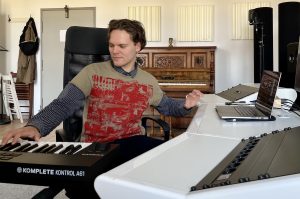
Magnus Tempels, a danish artist and producer who recently moved to Berlin. Photo: Hugo Göthberg
Meet Magnus Tempels, one of the many creators moving to Berlin to find inspiration to improve and express their art, and hear what his view is on Berlin as a music capital and its energy.
